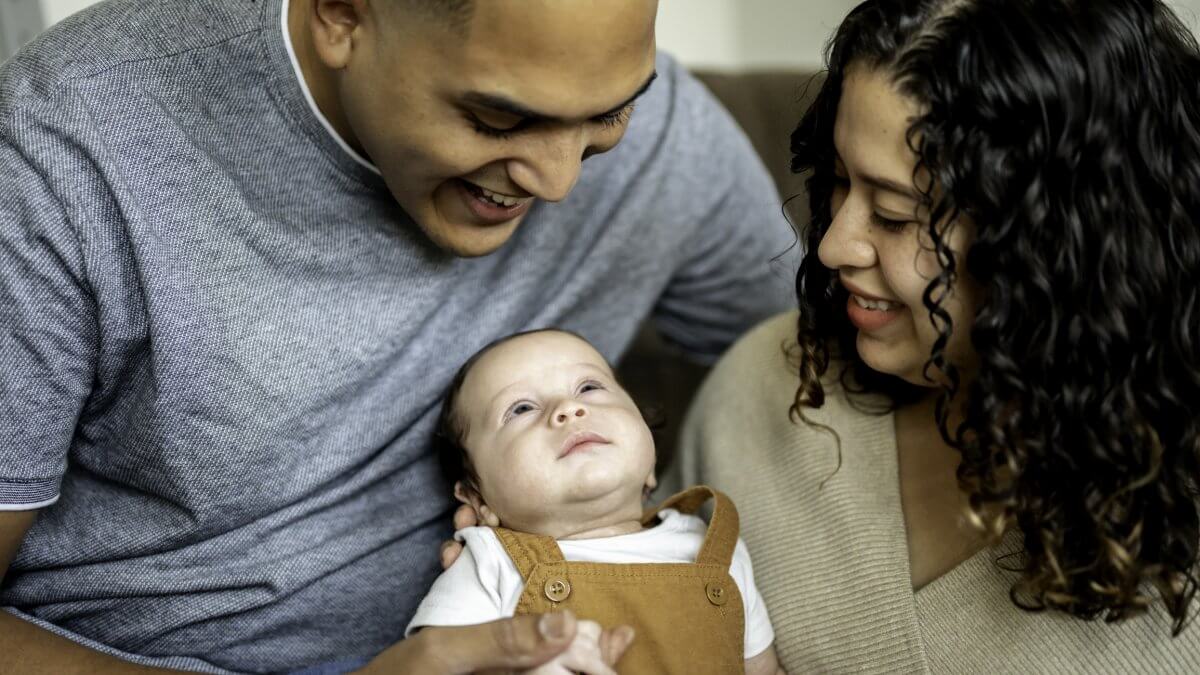For those on a surrogacy journey, IVF apps can help you stay organized, reduce stress and save time throughout the process.
Whether you’re tracking medication or managing emotions, these apps for IVF can help you stay on top of the many different aspects of your journey.
Follow us on Instagram for the latest updates, helpful resources and a community of intended parents just like you.
In this article, we’ll explore the best IVF apps available in 2025, including their key features, pricing, and how they can enhance your IVF experience.
What Are the Best Apps for IVF and Surrogacy in 2025?
IVF apps can save time, reduce stress and help you stay organized.
Their utility can improve your experience by:
- Tracking your cycle and medication schedules
- Reducing emotional stress with journaling and meditation features
- Scheduling medication or appointment reminders
While IVF apps can help you stay organized and on top of your surrogacy process, an agency like ours offers expert guidance and tailored solutions to ensure every detail is managed with care and precision. Contact us today to get the support you need.
Whether it’s an IVF meditation app or an IVF calendar app there’s an app for your needs.
#1. Alife Health
Alfie IVF is an IVF tracker app that makes it easy to stay organized and informed throughout your IVF and surrogacy journey. Alife uses AI-powered software to optimize IVF treatment.
- Key features: Create a timeline, calendar, reminders, appointment recaps, record medications, track symptoms
- Platform: IOS
- Cost: Free
- Rating: 4.9/5
- Data security: Encrypted using TLS/SSL, data is stored with Amazon Web Services (AWS)
#2. Medisafe
Primarily a medication management service, Medisafe can be used as an IVF tracker app for your medications. It integrates with your calendar and can sync with other health apps.
- Key Features: Reminders, syncs with your HealthKit app, report sharing with your doctor
- Platform: iOS/Android
- Cost: Free with in-app purchases
- Rating: 4.5/5
- Data security: Data is stored on private servers
#4. Embie
Embie is an IVF calendar app and IVF tracker app that provides tools to help you understand and manage your IVF treatment plan.
- Key features: Calendar for IVF medications and appointments, reminders, track your cycles’ results, community features
- Platform: iOS/Android
- Cost: Free with premium member/subscriber paid plans
- Rating: 3.8/5
- Data Security: Encrypted through https, Chino.io Security Platform
#3. Mindful IVF
Mindful IVF is an IVF meditation app designed for each phase of your IVF cycle. Different programs address different phases of the cycle and in 2024 they began offering classes to prepare you for IVF.
- Type: IVF meditation app
- Key features: Guided meditations for each stage, miscarriage support, two-week wait support
- Platform: iOS/Android
- Cost: 7 day free trial, monthly and lifetime subscription plans
- Rating: 4.3/5
#5. Naula IVF
Naula IVF is an IVF calendar app and IVF journal app that was designed so that you can keep track of your IVF medications and appointments all in one place.
- Key features: Medication and appointment reminders, add notes to appointments or medications, share treatment with your partner
- Platform: iOS
- Cost: Free
- Rating: 2.5/5
- Data security: SSL encryption for data and NSA-level ASE encryption of personal info
How to Choose the Right IVF App for Your Journey
With so many IVF apps available, it’s important to find the one that best suits your needs.
Here’s how to choose:
- Identify your needs: Determine what you need help with most—whether it’s tracking medications, managing appointments or emotional support. For tracking, apps like Naula IVF or Embie are great. For emotional well-being, consider Mindful IVF.
- Privacy and security: Look for apps with strong encryption, anonymous tracking and data deletion features to protect your sensitive health information.
- Ease of use: Choose an app that’s intuitive and easy to navigate. Read reviews or test the app to ensure it fits your needs without being complex.
- Cost vs. features: Free apps may offer basic features, while premium apps can provide advanced tools. Consider what’s worth paying for, like personalized features in apps like Mindful IVF.
- Look for community support: Some apps, like Embie, offer community features where you can connect with others on the same journey for advice and emotional support.
Privacy and Security of Apps for IVF: What You Need to Know
When using apps for IVF, privacy and security are critical concerns.
These apps often store sensitive health information, including medication schedules, cycle tracking data and personal medical histories.
Ensuring that your data is protected is essential. Here’s what you should look for in terms of privacy features:
- Data encryption: Many IVF apps use end-to-end encryption to protect your personal information. This means that only you (or those you choose to share with) can access your data, preventing unauthorized access.
- Anonymous mode: Some apps offer an anonymous mode, allowing you to track your journey without revealing your identity. This feature is particularly useful if you’re concerned about your privacy or don’t want to disclose personal information unnecessarily.
- Data Deletion: Be sure to check if the app allows you to delete your data once your IVF cycle or surrogacy journey is complete. For example, apps like Naula IVF ensure that your data is permanently removed once your account is terminated.
- Third-party access: Understand who has access to your data. Does the app share your information with third parties, or is it used solely for your benefit? Always review the app’s privacy policy to ensure your data is handled appropriately.
By choosing IVF apps that prioritize privacy and security, you can feel confident that your sensitive health information is protected throughout your journey to parenthood.
Getting Started
IVF apps can simplify your surrogacy journey by keeping track of appointments, medication and timelines. But with an agency like ours, you’ll also get personalized support every step of the way—making your journey even smoother.
Reach out today to start your surrogacy journey.









